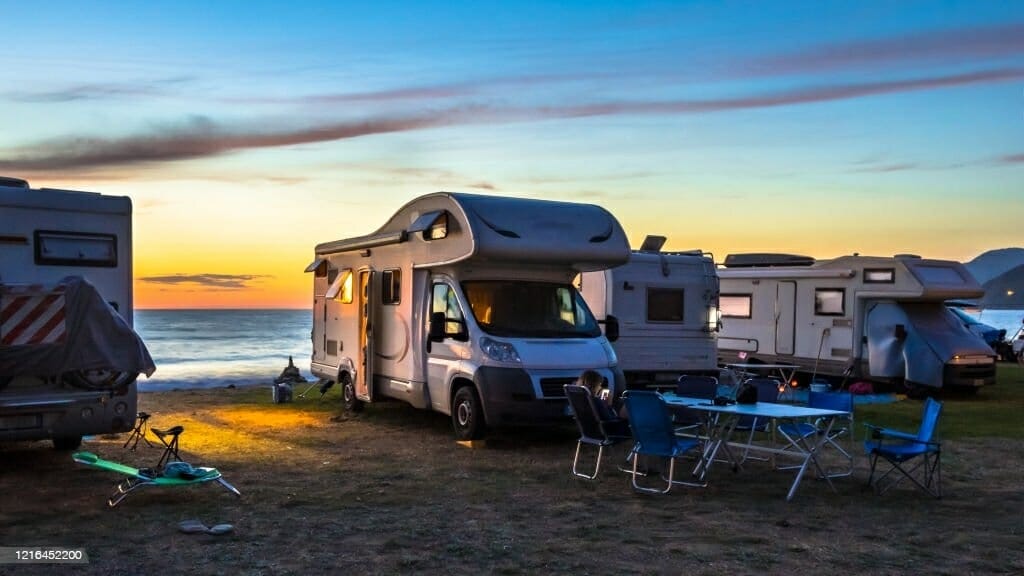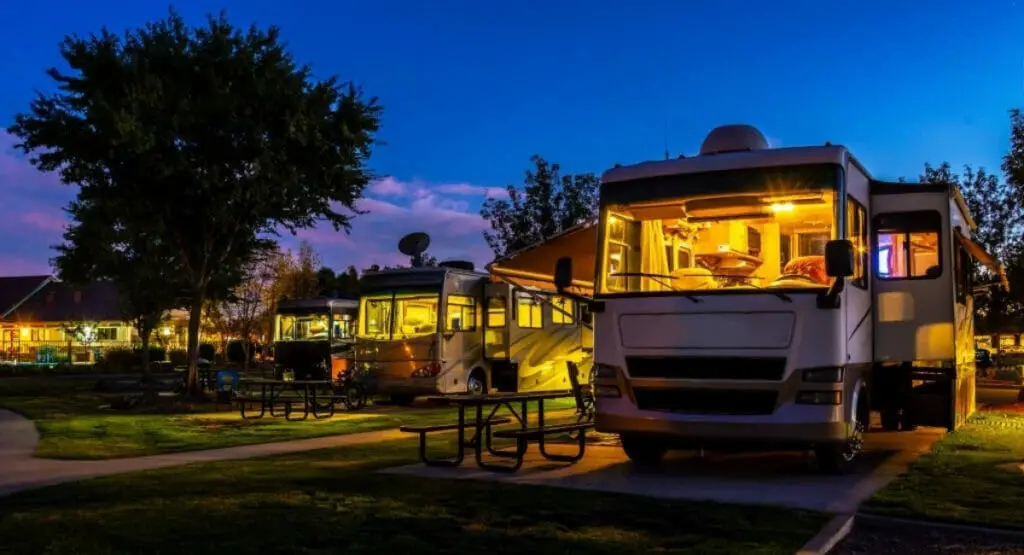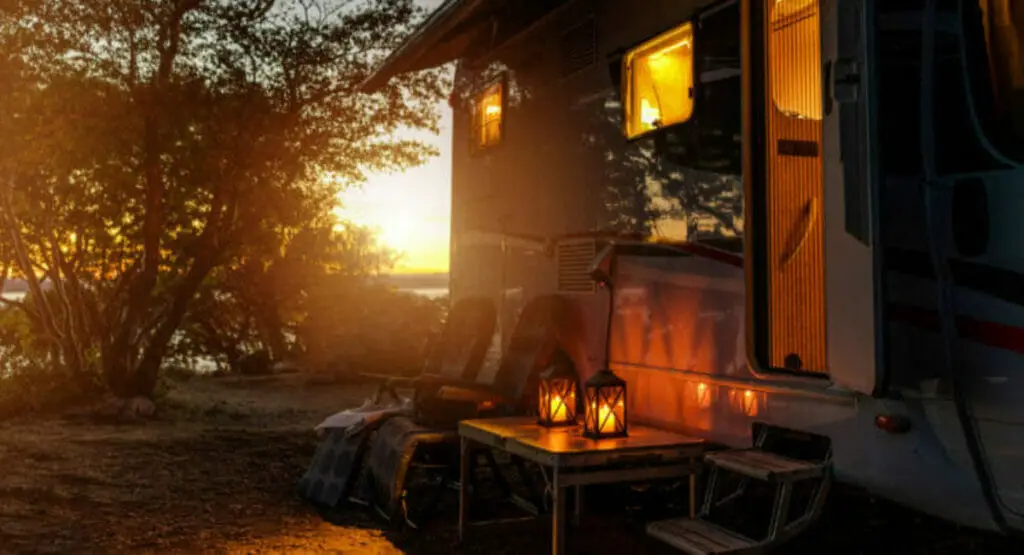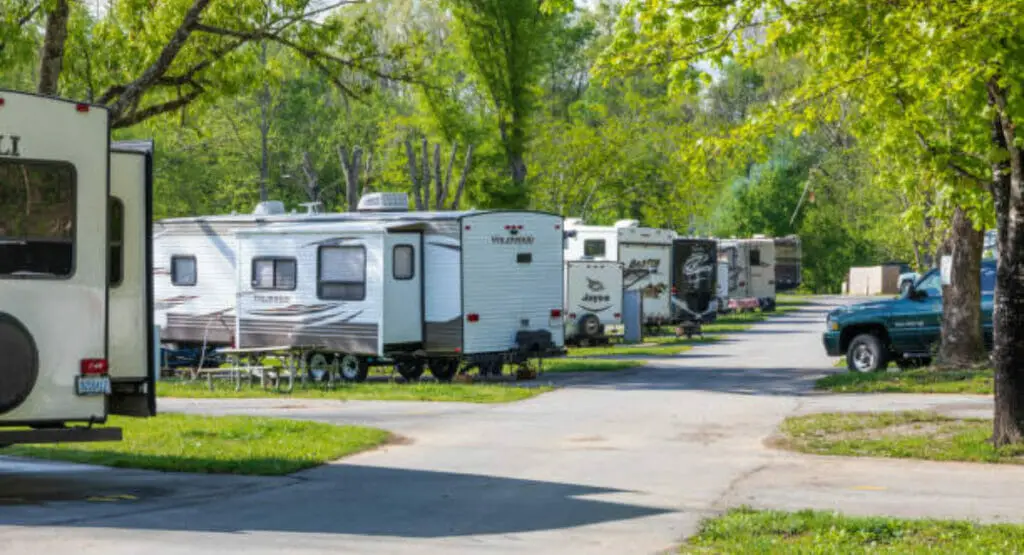RVs have grown in popularity in recent years, particularly in the United States. These adaptable vehicles provide a one-of-a-kind way to travel and experience the great outdoors, combining the conveniences of home with the freedom of the open road. RVs have been a popular means of transportation for many individuals due to their ability to go to isolated regions and enjoy the beauty of nature.
RVs have several advantages for travel and camping, including the potential to save money on hotel and eating while still having all of your stuff with you. RVs also offer a pleasant and adaptable living environment, letting you build a home away from home wherever you travel. Whether planning a weekend camping vacation or a cross-country expedition, an RV may offer a unique and delightful experience. Everything about RV, from the basics of RV ownership to road trip planning, is covered in this blog.
1. Types of RVs
Several types of RVs are available, each with unique features and benefits. Here are some of the most popular types of RVs:
i. Class A:
RVs are the largest and most opulent RVs available. They have the most room and amenities since they are constructed on a bus chassis. The advantages include lots of living space, full-sized kitchens and bathrooms, and high-end equipment like leather furniture and entertainment systems. The disadvantages include high fuel consumption, costly maintenance, and difficulty navigating in small areas.
ii. Class B:
RVs, sometimes known as camper vans, are smaller and more maneuverable than Class A RVs. They have a van chassis and provide a pleasant and small living space. Benefits include improved fuel economy, easier mobility, and the ability to park in tighter areas. The disadvantages include a lack of living space and facilities.
iii. Class C:
Built on a truck chassis, these RVs provide an excellent blend of living space and maneuverability. They have a distinct over-cab sleeping compartment and, in most cases, a slide-out for extra living space. The advantages include a more comfortable living area, better fuel efficiency, and more mobility than Class A RVs. The disadvantages include a lack of storage space and smaller bathrooms and kitchens.
iv. Travel Trailers:
These are towable RVs that hook to your vehicle’s hitch. They come in a range of sizes and provide a number of amenities, from basic to luxurious. The flexibility to detach from your vehicle for simple exploration, as well as a large choice of sizes and types, are advantages. The requirement for a tow vehicle, difficulty moving in narrow locations, and probable wobble while driving are all disadvantages.
v. Fifth Wheel Trailers:
Fifth-wheel trailers, like travel trailers, are attached to a hitch in the bed of a pickup truck. They have greater room and conveniences than travel trailers, such as several slide-outs for more living space. The pros include a large living area, exceptional towing stability, and the option to detach for simple exploring. The requirement for a pickup truck to tow, the greater upfront cost, and the difficulty driving in small locations are all disadvantages.
Each type of RV has its own pros and cons, and the right choice for you will depend on your budget, travel style, and personal preferences. Consider your needs and do your research before choosing the type of RV that’s right for you.
2. RV Living
For some, RV living has become a way of life. It offers the freedom to travel on your own terms, while also providing a more minimalist lifestyle. Here are some advantages and disadvantages of RV living:
Advantages

1. Flexibility to travel: With an RV, you can go anywhere and anytime you want, without worrying about booking flights, hotels, or rental cars.
2. Cost-effective: RV living can be much more affordable than traditional living, as you save money on rent or mortgage payments, utilities, and other expenses.
3. Closer to nature: RV living allows you to be immersed in nature and experience the great outdoors in a way that is not possible with traditional living.
Downsides
1. Limited space: RV living means living in a small space, which can be challenging for some people, especially when traveling with others.
2. Challenges with storage: RVs often have limited storage space, so you have to be creative with how you store your belongings.
3. Maintenance requirements: RVs require regular maintenance to keep them in good condition, and repairs can be expensive.
Tips for making RV living comfortable:
1. Keep things organized: In a small space, the organization is key. Use storage containers and vertical space to maximize storage.
2. Make use of outdoor space: Many RVs have an outdoor area, such as an awning or patio. Use this space to relax and enjoy the outdoors.
3. Personalize your RV: Make your RV feel like home by adding personal touches, such as photos, decorations, and comfortable bedding.
Overall, RV living can be a great way to travel and experience the world, while also enjoying a more minimalist lifestyle. With some planning and organization, you can make your RV feel like home, and enjoy all the advantages that RV living has to offer.
3. RV Maintenance
Just like any other vehicle, RVs require regular maintenance to keep them in good condition. you may find some maintenance blogs on this website. Here are some important things to know about RV maintenance:
i. Importance of Regular Maintenance:
1. Helps to identify potential problems early: Regular maintenance can help you catch small problems before they turn into bigger, more expensive issues.
2. Improves performance: Keeping your RV well-maintained can help it run more efficiently and perform better on the road.
3. Extends the lifespan of your RV: By taking care of your RV and staying on top of maintenance tasks, you can help ensure that it lasts for many years to come.
ii. DIY vs. Professional Maintenance:
1. Simple tasks can be done on your own: Some basic tasks, such as checking the tire pressure and cleaning the exterior, can be done by RV owners themselves.
2. Seek professional help for more complex tasks: For more complex tasks, such as engine repairs or electrical issues, it’s best to seek professional help from a mechanic or RV technician.
iii. Common Maintenance Tasks for RVs:
1. Inspecting the roof: The roof of your RV should be inspected regularly to check for any signs of damage or wear and tear.
2. Checking the brakes: The brakes on your RV are crucial for safety, so they should be checked regularly and replaced as needed.
3. Replacing filters: Filters, such as the air filter and oil filter, should be replaced regularly to keep your RV running smoothly.
Overall, RV maintenance is crucial for ensuring the safety and longevity of your RV. By staying on top of maintenance tasks and seeking professional help when needed, you can help ensure that your RV is always in good condition and ready for your next adventure on the road.
4. RV Camping Tips
Camping in an RV is a fantastic way to experience the great outdoors while still enjoying the comforts of home. Here are some tips to help you have a safe and enjoyable RV camping experience:
i. Choosing the Right Campground:
1. Consider the location: Think about what type of scenery you want to wake up to, whether it’s a forest, beach, or mountain view.
2. Look for amenities: Choose a campground with amenities that suit your needs, such as water and electric hookups, showers, and laundry facilities.
3. Check accessibility: Make sure the campground is easily accessible for your RV size and has enough space for your vehicle.
ii. Preparing for The Camping Trip:
1. Plan meals: Plan your meals ahead of time to ensure you have enough food for your entire trip.
2. Pack appropriate gear: Bring appropriate clothing for the weather, as well as outdoor gear such as hiking boots, chairs, and a campfire grill.
3. Check your RV: Before leaving, make sure your RV is in good condition and that all systems are working properly.
iii. Camping Etiquette and Rules:
1. Respect quiet hours: Be respectful of other campers and observe quiet hours, typically between 10 PM and 7 AM.
2. Follow fire safety guidelines: Follow fire safety guidelines to prevent wildfires and keep your fellow campers safe.
3. Clean up after yourself: Leave your campsite cleaner than you found it by properly disposing of trash and cleaning up any food scraps.
By keeping these tips in mind, you can enjoy a safe and comfortable RV camping experience that allows you to reconnect with nature and make memories that will last a lifetime.
5. RV Road Trip Planning
Planning an RV road trip can be a thrilling experience, but it’s important to have a well-thought-out plan to ensure a successful trip. Here are some tips to help you plan the perfect RV road trip:
i. Planning The Route:
1. Consider distance: Decide on how far you want to travel each day and plan your route accordingly.
2. Check the weather: Be aware of the weather conditions in the areas you plan to visit and plan accordingly.
3. Research attractions: Look for interesting attractions, landmarks, and scenic routes along your route.
ii. Choosing Destinations:
1. Research destinations: Do your research and choose destinations that appeal to your interests, whether it’s national parks, museums, or beaches.

2. Plan activities: Once you’ve chosen your destinations, plan activities that are suitable for your travel companions and interests.
iii. Road trip essentials:
1. Gear up: Bring the right gear, including safety equipment, navigation tools, camping gear, and entertainment options.
2. Plan meals and stops: Plan your meals and snacks ahead of time to avoid unnecessary stops and keep your energy up on the road.
3. Stay safe: Follow safety guidelines on the road, such as wearing seat belts, taking breaks when necessary, and obeying traffic laws.
With these tips in mind, you can plan a memorable and enjoyable RV road trip that will leave you with unforgettable experiences and memories.
6. RV Rental
Renting an RV can be an excellent option for those who want to experience RV living without the commitment of owning one. Here’s what you need to know about renting an RV:
i. Pros and Cons of Renting an RV:
Pros:
Renting an RV can be more cost-effective than owning one, as you won’t have to worry about maintenance, storage, and other costs associated with owning an RV. Renting also provides you with the convenience of trying different types of RVs and the ability to plan your trip without worrying about the logistics of owning an RV.
Cons:
Renting an RV typically come with restrictions on mileage, and you may not be able to customize the RV to your preferences.
ii. Types of RVs available for rent:
1. Class A: Large, luxurious motorhomes with plenty of living space.
2. Class B: Smaller motorhomes that are easier to drive and park.
3. Class C: Mid-sized motorhomes with living space in the back.
4. Travel Trailers: Trailers that are towed by a truck or SUV and offer a wide range of sizes and features.
5. Fifth Wheel Trailers: Similar to travel trailers but require a special hitch that’s mounted in the bed of a pickup truck.
iii. Tips for renting an RV:
1. Research rental companies: Look for reputable rental companies that have a good track record of customer satisfaction.
2. Read reviews: Check online reviews from previous renters to get an idea of the company’s customer service and the condition of their RVs.
3. Inspect the RV thoroughly before renting: Make sure you inspect the RV thoroughly before renting, paying close attention to any signs of wear and tear, damages, or malfunctions.
Renting an RV can be a fun and exciting way to explore new destinations and experience the joys of RV living. By following these tips, you can ensure a smooth and enjoyable RV rental experience.




A blog full of information for those who are trying to go RVing. Keep it up!